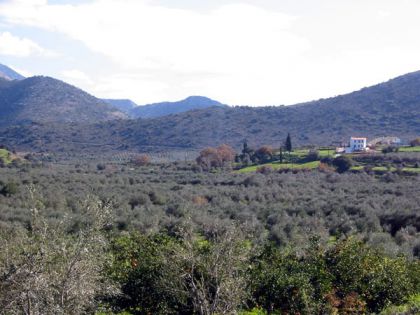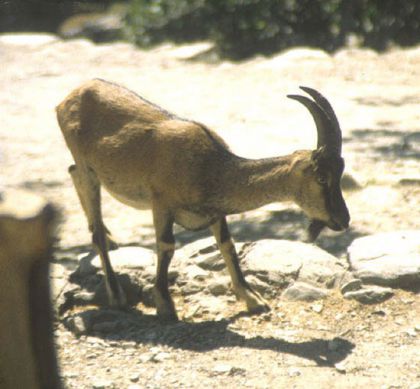 Crete is the home of a rich variety of flora, including 130 species of wild flowers and herbs which are unique to it. Among these are dictamo (Origanum dictamnus), the herb made famous by Aristotle for its medicinal properties. Another unusual feature is the evergreen Cretan plane-tree (platanus orientalis, var. cretica). In all of Crete we encounter 17 endemic plants. Spring is probably the best time to enjoy the flora, when the fields are ablaze with red poppies and the scent of orange and lemon blossoms fills the air.
Crete is the home of a rich variety of flora, including 130 species of wild flowers and herbs which are unique to it. Among these are dictamo (Origanum dictamnus), the herb made famous by Aristotle for its medicinal properties. Another unusual feature is the evergreen Cretan plane-tree (platanus orientalis, var. cretica). In all of Crete we encounter 17 endemic plants. Spring is probably the best time to enjoy the flora, when the fields are ablaze with red poppies and the scent of orange and lemon blossoms fills the air.
The landscape is dominated by dry scrub in the summer, while oleander and osier bloom in the ravines. Anemones are abundant in the winter.
 Equally varied is the fauna of Crete. The unique Cretan wild goat (Capra aegagrus-cretica) has a distinctive and impressive appearance. A protected species, the agrimi or "kri-kri" lives in the White Mountains, the Samaria National Forest and on the islets of Dia, Aghioi Pantes and Thodoros. Other interesting mammals on the island are the Cretan marten (Martes foina-bunites), the very rare Cretan wildcat (Felis silvestris agrius) and the Cretan badger (Melesmeles-arcalus).
Equally varied is the fauna of Crete. The unique Cretan wild goat (Capra aegagrus-cretica) has a distinctive and impressive appearance. A protected species, the agrimi or "kri-kri" lives in the White Mountains, the Samaria National Forest and on the islets of Dia, Aghioi Pantes and Thodoros. Other interesting mammals on the island are the Cretan marten (Martes foina-bunites), the very rare Cretan wildcat (Felis silvestris agrius) and the Cretan badger (Melesmeles-arcalus).
Alert visitors may also spot hares and hedgehogs and, if very lucky, the endangered loggerhead (caretta-caretta) sea turtle, which lay their eggs on a number of quiet beaches around the island. The magnificent Cretan golden eagle (Aquila chrysaetus) and the lammergeyer (Gypaetus barbatus), a subspecies unique to Crete, stand out among the birds. The mountains and many ravines are home to griffon vultures. Swallows and warblers are common and goldfinches are occasionally sighted. Crete is also a stopover each spring for birds migrating from Africa to Europe as well as in the autumn as they make the return flight. (Source: Hellenic Sun Editions)
Read Also:


